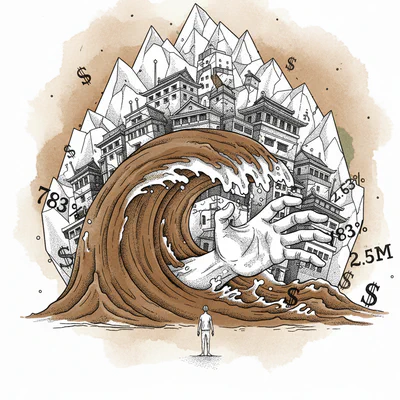About how media experts try to attract OpenAI specialists to the country with the most expensive electricity in the EU, offering them cold radiators and survival grants in return.
It’s amusing how journalists and commentators talk about Poland’s potential in AI development by pointing to people who work at OpenAI and Gemini. As if a Pole being employed overseas somehow opened the door to technology for us. They spin tales from moss and ferns, suggesting that it would only take a little effort to bring them back.
Let’s pause for a moment, shall we? Let’s analyze where we’d bring them to. To a country with “cheap” electricity, “excellent” working conditions, a “healthy” atmosphere between scientists, and where politicians don’t make deals on such projects. Out of mercy, I won’t ask why these super specialists fled Poland in the first place. Today, Wyborcza encouragingly calls these scientists with a front-page Lead describing poverty and misery… PAN Professor: I run grants, have successful PhD students. And I don’t know if I’ll be able to pay my bills this winter
It’s completely abstract to talk about innovations with the most expensive electricity in the EU and no quick prospects for cheap power. Commentators detached from reality live in a world of fairy tales, where infrastructural problems, work culture, systemic conditions, and development potential don’t matter.
To be honest, it’s like telling Lewandowski to play for Widzew Łódź on the substitutes’ bench. The bench for substitutes is waiting, come on in!

In my opinion, it’s really funny that on radio or in the press, journalists and their guests quite seriously and with strange selective perception deliberate on these matters. As if it would really, really be enough to just focus and it would work out. Just like with the electric car and other projects, right?
If someone still doesn’t understand this, and I’m writing here about the humorous aspect of this matter, I recommend looking at the chart and the non-refundable tax burden in electricity costs. This is key and shows the priorities of this country. Innovation or competitiveness doesn’t count here, only crushing startups, ambitious people, private businesses, and innovative projects with operational costs. Surely there are many who rejoice in this backwardness or Darwinism. For example, the idea that what doesn’t kill me makes me stronger should potentially produce better quality.
Such a toxic and difficult environment should lead to adaptation and creation of some innovation. So far, the only thing it produces is less competitiveness, high costs for the economy, expensive housing, higher production costs, and closed facilities that move all production to places where utility costs are simply lower.
I wanted to encourage you to think critically…





